

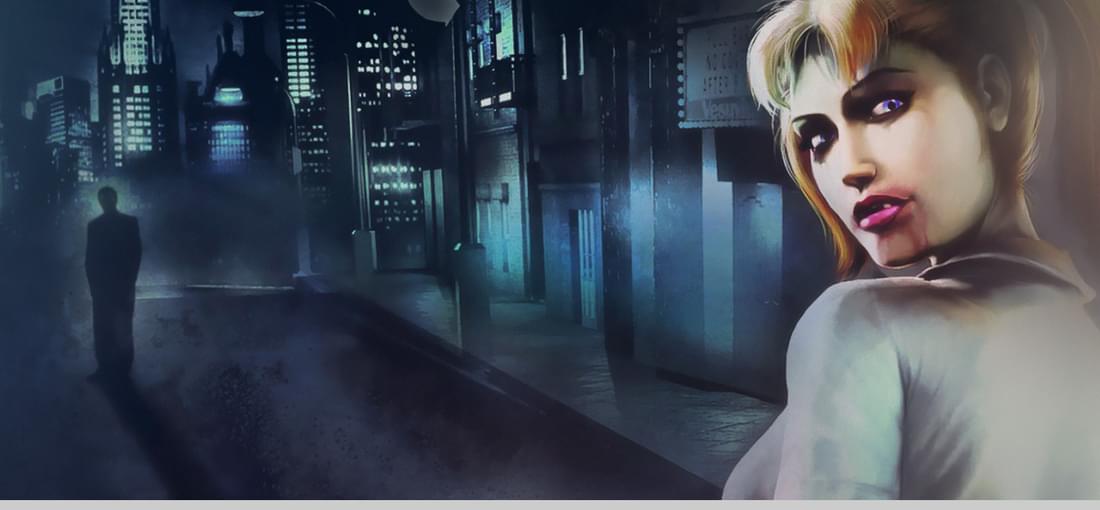
If I had played this when I was 16, I would have absolutely eaten this up and probably made it a big part of my personality for a long, long time. Playing it for the first time as an adult, I can still admire the confident worldbuilding, incredibly charismatic writing, and impeccable early-2000s silliness while also conceding that holy moly, this game constantly feels like it is falling apart as you are playing. Every technical aspect of it feels like a jigsaw puzzle whose pieces only technically fit together but you've got to really wedge them in there in order to make it work. Quests break, A.I. is not, and the balance between the different playstyles is all over the place. Knowing a bit about the game's development history and the situation with the source engine, it's probably difficult to say where the devs' intentionally stops and the kind of busted version of the source engine begins, and the game is obviously fully playable from start to finish. But either way, it did result in a game that, for me, was on average pretty unpleasant to play for a lot of the time. The story, though, the character, the world: Fantastic, and in a different timeline, potentially formative.
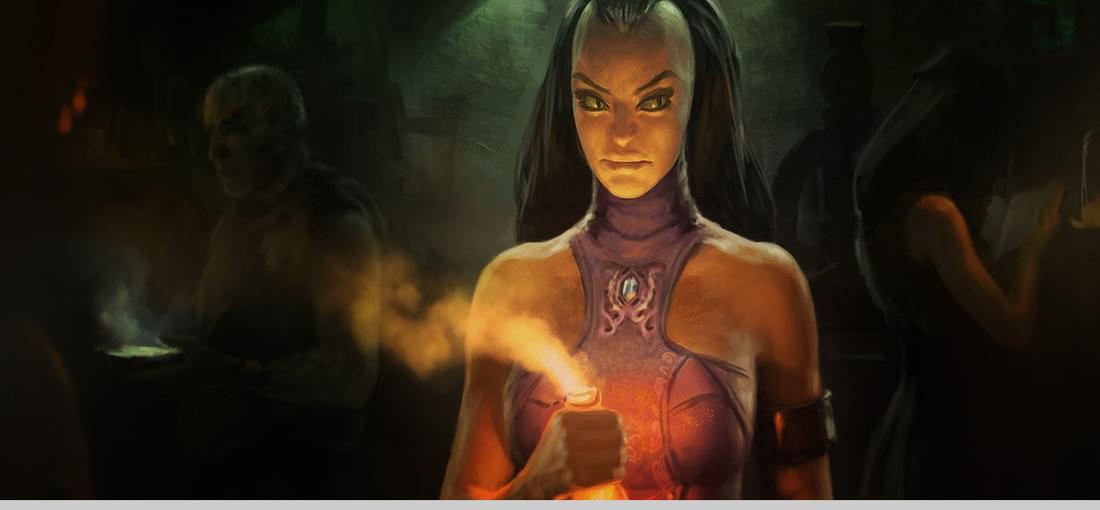
The original Neverwinter Nights 2 campaign starts off at an OK 3 and then gradually climbs up to a solid 4 by the end. I'm giving this a 5, however, because Mask of the Betrayer is genuinely one of the most fun and creative fantasy stories that I've played through in a video game, on par with Planescape Torment with how it explores faith, law, and the value of upholding or resisting the status quo through the lens of DnD cosmology. The leap in writing quality from the OC is so immediately apparent that I could understand why some people online say to just skip the original campaign and go right to MotB. Personally, I enjoyed working through the campaign even though it was much more Forgotten Realms-by-the-numbers. The characters are charming, you visit a variety of DnD places and do a bunch of DnD things, and once the pace picks up in the latter half, it feels like a fun, old-school adventure with that special kind of shallow but winking good nature that you don't see much of anymore in fantasy games. Regarding the Enhanced Edition, the only notable changes are controller support (which admittedly works better than I expected), some very minor graphical tweaks, and the ability to run it slightly more smoothly on modern systems. This original version took just a little bit of fiddling for me in order to start the game and change the resolution without crashing. That said, if you want to play something closer to the original experience, this version absolutely still runs fine once you can get it started, and it has all the same excellent content in one place. The game itself is buggy and, like other huge RPGs from its time, always kinda feels like it's going to break down. To me, however, that's just part of NWN2's charm.
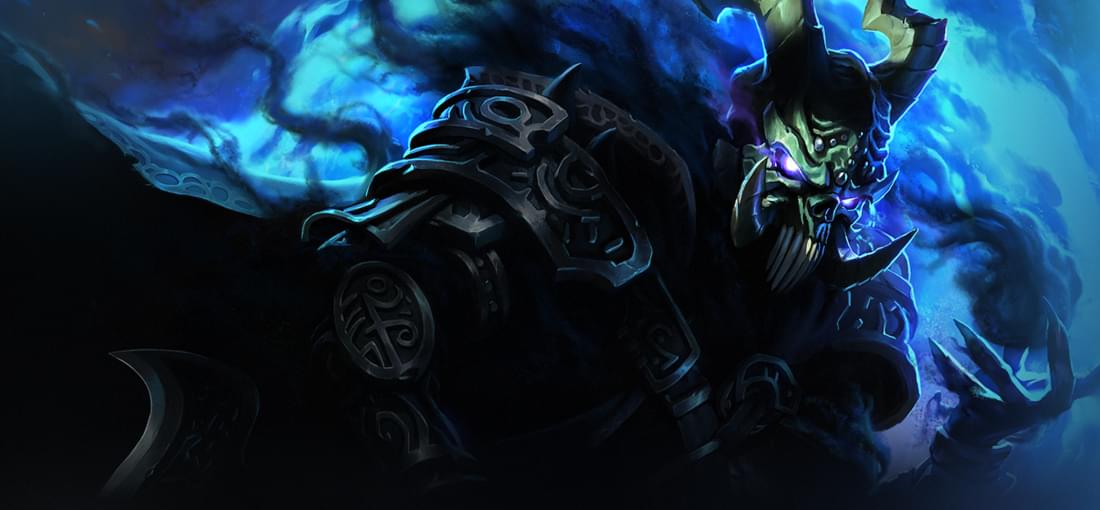
The original Neverwinter Nights 2 campaign starts off at an OK 3 and then gradually climbs up to a solid 4 by the end. I'm giving this a 5, however, because Mask of the Betrayer is genuinely one of the most fun and creative fantasy stories that I've played through in a video game, on par with Planescape Torment with how it explores faith, law, and the value of upholding or resisting the status quo through the lens of DnD cosmology. The leap in writing quality from the OC is so immediately apparent that I could understand why some people online say to just skip the original campaign and go right to MotB. Personally, I enjoyed working through the campaign even though it was much more Forgotten Realms-by-the-numbers. The characters are charming, you visit a variety of DnD places and do a bunch of DnD things, and once the pace picks up in the latter half, it feels like a fun, old-school adventure with that special kind of shallow but winking good nature that you don't see much of anymore in fantasy games. As for this new version, I started my character in NWN2 Complete and then transfered over when the Enhanced Edition came out, so I can say with confidence that if you're approaching this for the first time, there's no reason why you shouldn't pick up this version, and if you have the original already then there's no reason why you should. The most important new feature is that it will just install and run on a modern computer, which the original did not do for me without some fiddling. All the old bugs are still there, and the game itself still feels like it's always on the verge of breaking down like RPGs from this era tend to do (by the end, I had no less than three quests just lingering in my journal that I definitely had already completed, among other silly bugs like that). But then again, that old busted feeling, the somewhat clunky gameplay, these fun characters and this incredibly imaginative writing, all feel like definitive parts of NWN2's charm.
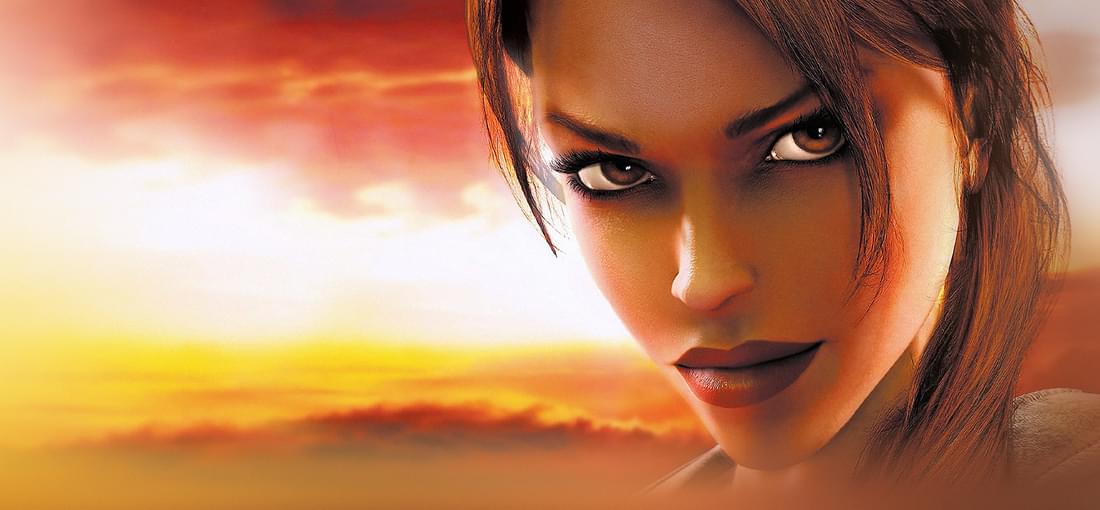
This was fine. I bought and played it because this whole trilogy is often less than 3 dollars, and I was curious to get a sense of what this series, and action adventure games as a whole, were like back in the mid-2000s. As often happens when playing a game from the mid to late PS2 times, there's an interesting balance between forward thinking and some pretty prominent jank. Like with Prince of Persia, Lara can alternately be incredibly animated and also incredibly awkward to control. The pacing and level design of the future Uncharted games is here, as is the modal design that only ever sees you either fighting bad guys or solving puzzles, never both or some variant of either. I'm not really one for linear cinematic action platformers anymore, so it didn't really strike a chord with me, but I can imagine someone who loves these kinds of games getting a kick out of the beginnings of the genre's evolution. That said, what I did genuinely enjoy was briefly indulging in the mid-2000s tropes and aesthetics. Lara is a Brit who wants other cultures' artifacts and will kill anyone who stands in her way, and an early iteration too, before future games would get slightly more thoughtful about that whole thing. The soundtrack has those weird pop rock guitars that every action movie from the era has, there's a cheesy intro cutscene with splash credits and cool poses, and both the villains look like Toreadors from Vampire: The Masquerade: Bloodlines. If nothing else, that stuff is quaint and fun, if outdated, and I did get some enjoyment out of occupying that space for 6 hours or so.
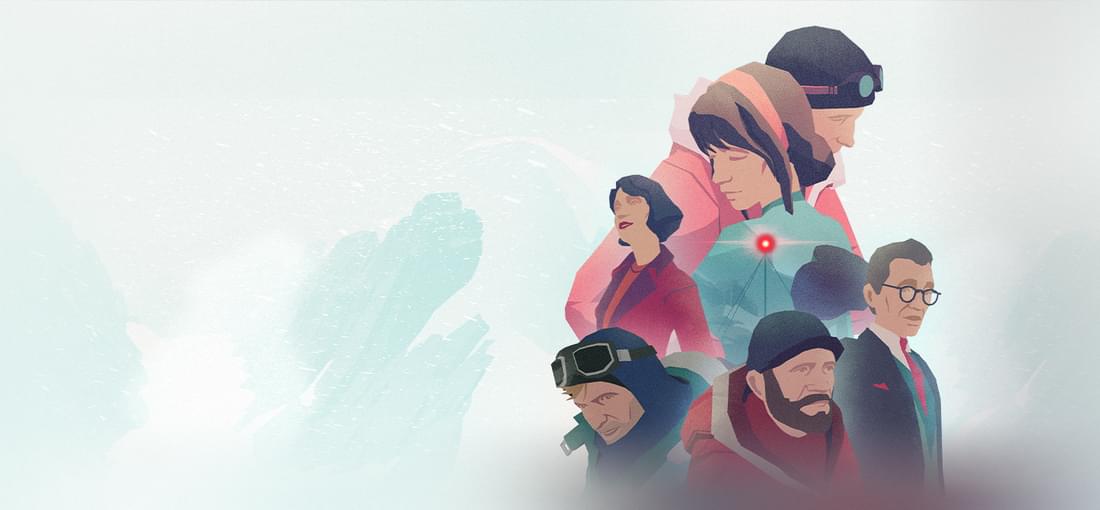
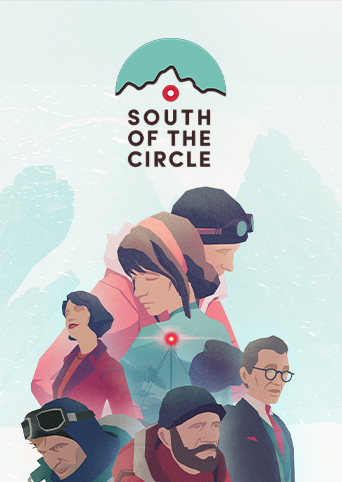
I was considering giving this 4 stars on the basis of its lack of interactivity. Games are an interactive medium, after all, and a big part of their artistry is in their ability to elicit emotions through their mechanics. On the surface, South of the Circle's mechanics are, put generously, pretty sparse. You move forward, you choose your dialogue, very occasionaly you *spoilers* tune a radio. As an experience, however, these mechanics do end up contributing to the game's story in a deeper way than those of most triple A games, albeit without ever achieving subtantial complexity. Your dialogue options, for example, are chosen through their tone and emotion rather than specific wording. The decisions you make are through the lens of your character's memory, which means they're inherently unreliable. And your walking (forward, always forward) lends itself to smash cuts that, while presumably technologically hampered by the game's need to work on phones, work well as both scene transitions and ways to depict your character's increasing desperation. To say how these mechanics culminate would be a spoiler, but I will say that the conclusion achieves a de nous mas with its exploration of choices, or lack thereof, that's on par with other indie games in its genre, like Firewatch, and which handily surpasses bigger, more expensive games. Beyond the mechanics, the visual style is fantastic, the writing and vocal performances are excellent across the board, and the soundtrack can sit alongside those of Gone Home and Edith Finch as ambient perfection. I got this game as part of a free giveaway, but I went out and bought the DLC for it once I was done to support the devs, because I genuinely think that stories like this, which move away from genre and explore the quieter, more mundane aspects of being human, are where videogames could stand to expand into if they want to grow as an art form.
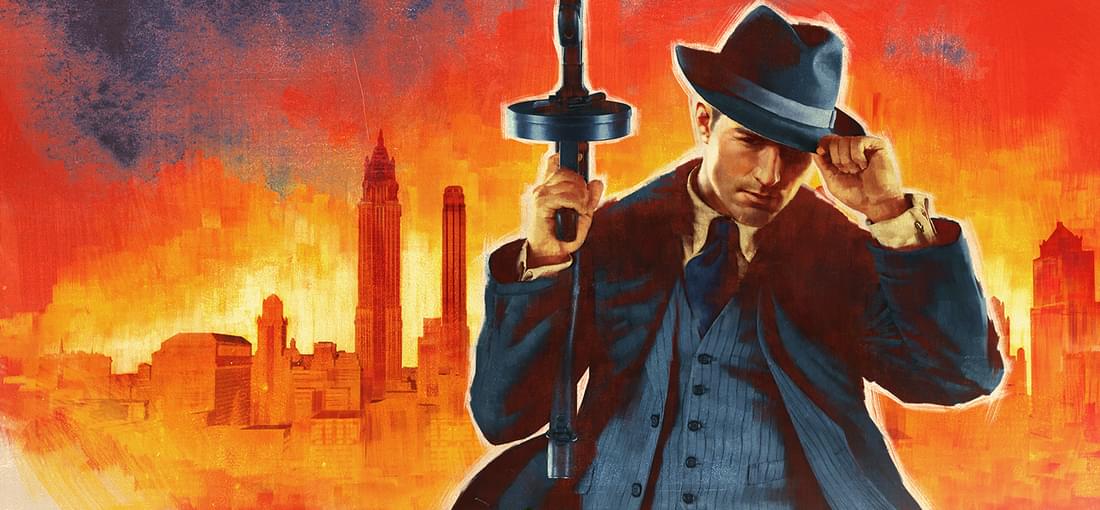
It was interesting to play this game back to back with Yakuza 0. While they're both organized crime power fantasies, they contrast each other in their tonal and gameplay choices in ways that I find really interesting, if not very complimentary to Mafia as a game. Yakuza 0 is much more straightforwardly interested in an idealized version of the mobster power fantasy. You're after women, money, and power, all while inflicting violence but without ever killing. You are, essentially, a criminal super hero of sorts, and in that respect, the narrative takes on an almost fantastical dimension (real-world politics and sexism notwithstanding). Mafia is an archetypal Italian-American mob story, which means it attempts to be a cautionary tale in the vein of The Godfather or Goodfellas. A story about communities built on mutual aid, ambition, and crime whose members and their vices ultimately prove to be their downfall. This is fine, in concept. The problem is the narrative's framing device as a series of flashbacks. One of the best things about Y0's story is that characters will sit and talk to each other like people do. It slows the narrative down, but it also fleshes out the characters in a way that few other games bother to do. Mafia does no such slowing down. You're essentially taken through the action-packed clif-notes of a mob story without any of the humanizing moments that make stories like The Godfather interesting and tragic. You get none of the downtime to establish context, none of the family time that makes you understand what these characters are trying to build and fight for. Instead, you get action set piece after action set piece. Your main character racks up a body count higher than probably every mobster movie combined. There are whackings, betrayals, and big scores, which in a better story would be the action nadirs of tense dialogue, characterization, and build-up but which here are just 1930s-flavored shooting galleries without much substance.
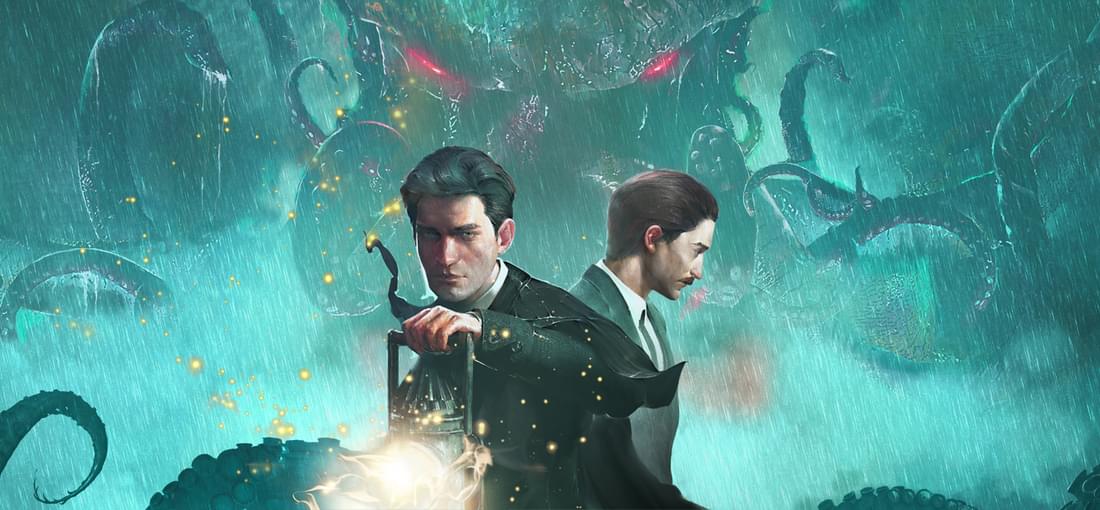
I didn't know the original version of this game existed until this remake was announced, but when I heard about it, there was something about the premise that made total sense to me. I love the idea of the world's greatest detective tackling a macabre mystery that tiptoes between the real and unreal, that incorporates his knack for finding patterns, clues, and insight with a mythos in which insight and knowledge inevitably lead to madness. I still really love that idea, even if unfortunately, this version doesn't quite pull it off in the way I was hoping. Experientally, pretty much all the thoughts I had for Sherlock: Chapter One apply to this game as well. In every respect, from the gameplay to the graphics to the storytelling, SHA is promising but flawed, and every improvement is also accompanied by a new annoyance. The game's scope, for example, is significantly reined in. This is great. Dense, lived in levels will always feel more substantial than open worlds. Unfortunately, that also means that most mechanics which you performed by making use of the open world, like visiting town halls, police stations, and libraries to verify information, are now limited to specific instances in which you just do all the same actions in the main menu, which doesn't really make sense. The story, meanwhile, has all the similar charms and jank of the previous game. The dialogue can alternate between being genuinely sharp (Holmes and Watson are a winning pair of goobers) and bafflingly stupid (almost all the side characters are really rough). The setup is incredibly intriguing, but once it gets going, it never really pays off in the thoughtful way that I hoped. That said, I'm glad I played SHA, and I'm very excited for SC2. That this studio has continued to make art in the face of oppression is a testament to real resilience, and it's rare that something so imperfect can make me feel so proud of what humans are capable of, even in the worst conditions imaginable.
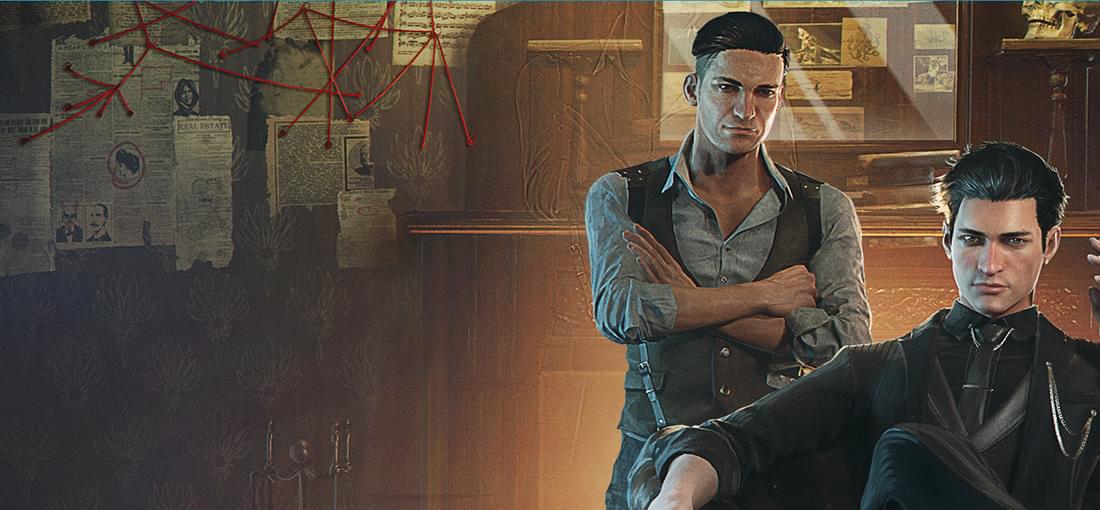
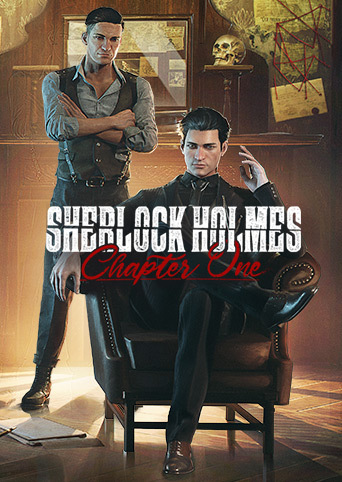
This is the second Frogware game I've played (first was The Sinking City), and I'm eager to play more because even though their games are far from perfect, in both cases I've been consistently, incredibly charmed in a way that I can only articulate by highlighted everything they do well directly alongside everything that's busted. The open world is incredibly superficial. There was no need for either this game or Sinking City to feature full cities, and to the devs' credit, they seem to have realized this, as both SH: Awakened and SC2 are more limited in scope. That said, the cities themselves are gorgeous, filled with landmarks, janky citizens, nonsensical barriers, and well studied architecture. The gameplay systems all mostly work fine, and a couple of them absolutely do not need to be in here. If you just play through the main story, like I did, you will engage in combat exactly two times. Some of the writing can be genuinely thoughtful and emotional, and some of it can be dull or amateurish. The voice acting can be lived in and well performed, or it can be phoned in and just kind of off. The story can demonstrate a surprising sensitivity and nuance towards things like race and gender, and then include depictions of marginalized communities that feel a bit shallow and unresearched, not to mention character models of people of color whose shading and coloring shows that they are clearly white character models with a few sliders adjusted. The final reveal and ending were emotionally impactful. The very final epilogue is incredibly silly. By all accounts, this game should be a 3, or even a 2 at its dullest and jankiest. But here I am, happily putting it behind me, knowing I'll take a break from it, but excited to eventually, inevitably return to these systems, this character, and this world. Frogwares continues to make games in the shadow of a vicious ongoing invasion. I hope they're doing OK.
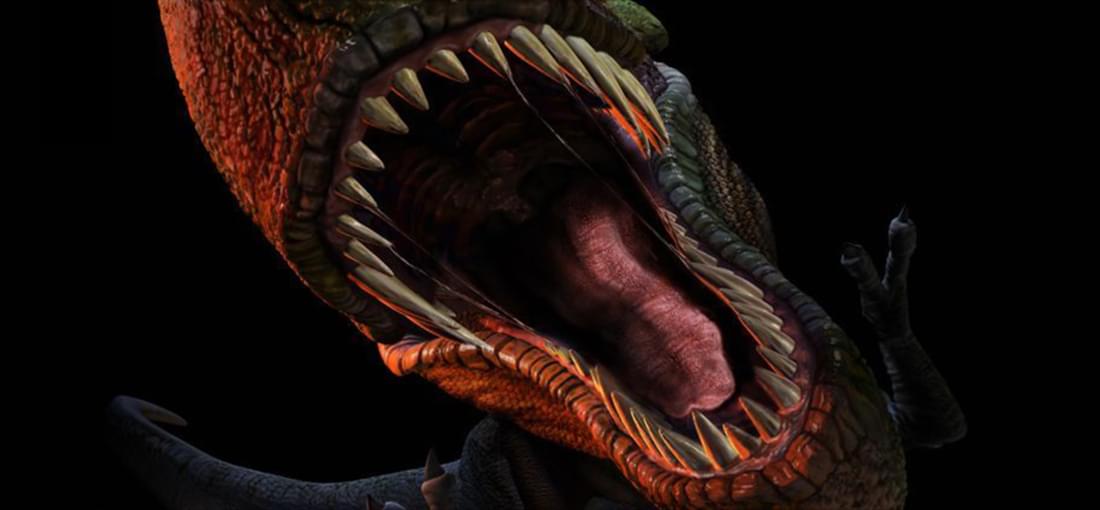
All my notes for the first game essentially apply to this sequel: Ridiculous story (non-derogatory), fun and goofy characters, objectively perfect title. What this game does that's different is to essentially make the leap from RE1 to RE4 within a single game. DC2 is entirely action-focused, giving you basically unlimited ammo and an automatic run and having you rack up points by scoring combos to buy better guns. The story also seems to have recognized that there's not a ton of mileage out of bringing back dinos, so it goes full-on into beautiful PS1 era time travel nonsense. I was initially hesitant to embrace Dylan. I found Regina to be incredibly charming in the first game, so the prospect of an additional protagonist seemed strange. After a while though, Dylan fully leans into being God's perfect idiot, which won me over and made the ending a blast to witness and, at this point, appreciate for the open question that it will probably remain.
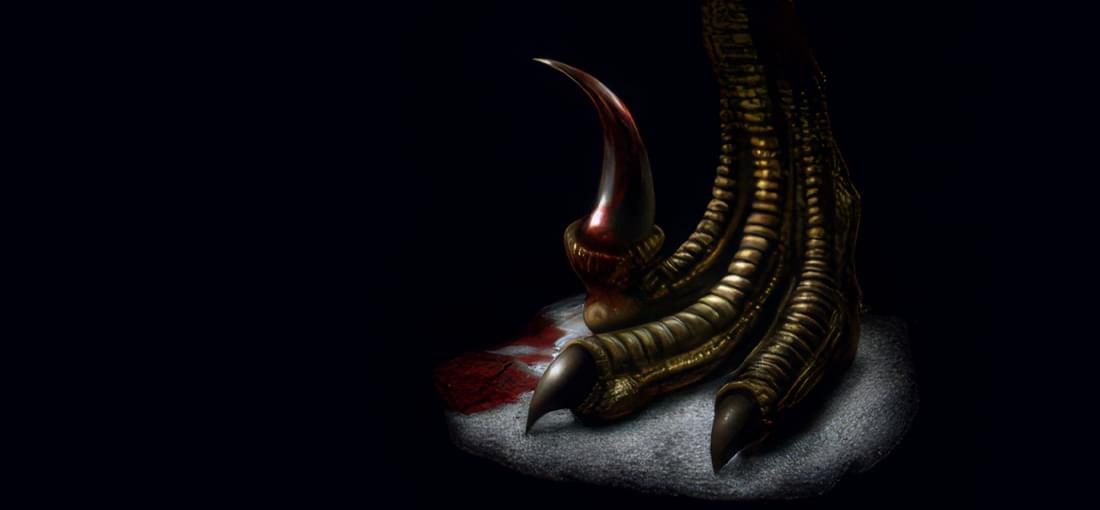
Games like this first Dino Crisis are interesting to me because if I were playing them when they were contemporary, I may have a completely different opinion of them than I do now, when I am playing them specifically to get more of something that I already know I enjoy. In reality, especially when compared to the original Resident Evil games, this would probably be more of a 3/5, because there are issues that add more friction than those original RE games. As others have pointed out, getting around these environments with this map is a huge pain, in part because the map system sucks but also because this setting is a bit anonymous. Rooms are mostly generic science facility biomes with very few distinguishing features, especially when paired with generic names like "Control Room" or "Management Room" or "Office." That anonymity is also what I would credit for Capcom not being in any rush for Dino Crisis to get back. RE's haunted house and destroyed city was much more impactful and memorable, and its story offered more creative possibilities than just, what if you found more different kinds of dinos (or perhaps some time travel)? All that said, this is a solid 4 for me because, like the games that inspired it which I have grown to love, the pacing, action, and rhythm of Dino Crisis are something I can immediately sink into and enjoy, and while its environments aren't memorable, it's still got that puzzle-box space structure littered with monsters that I can always sink into and enjoy. The story is nonsense (non-derogatory), the characters are all goofy, Regina is a genuinely fun, well acted protagonist, and the whole thing is fast-paced and breezy and over in a few hours. And it has an objectively perfect title.